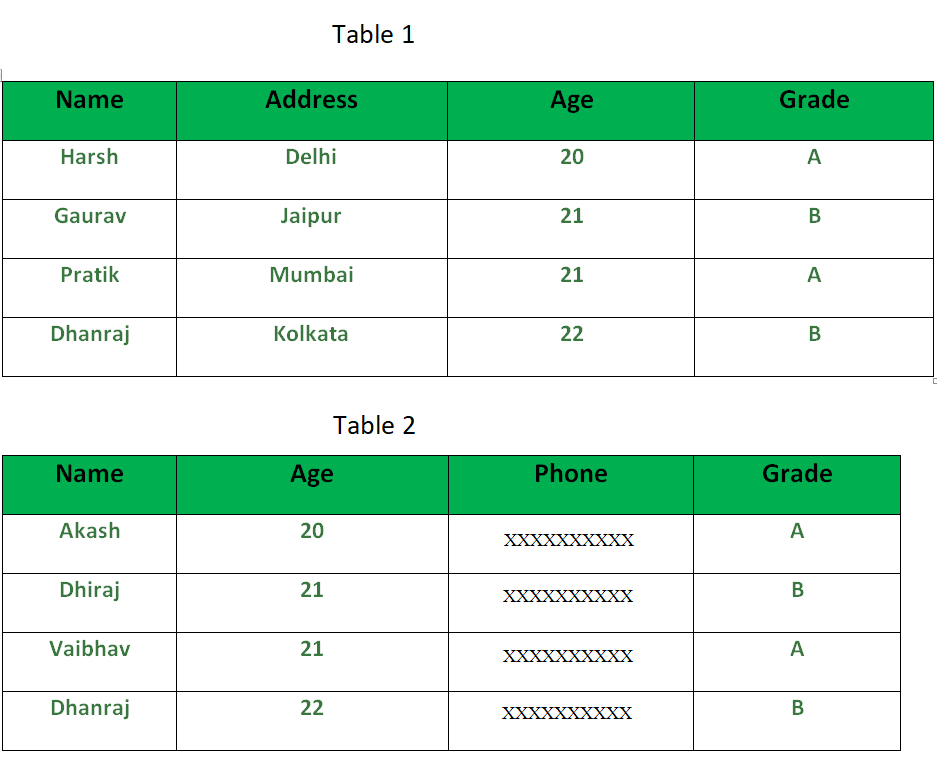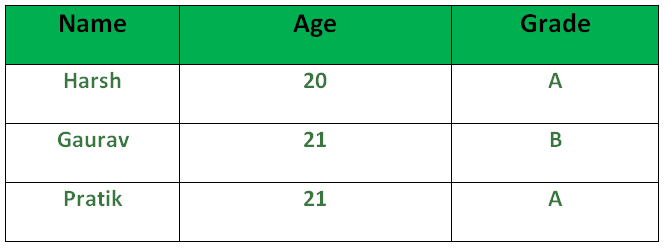SQL | MINUS Operator
Last Updated :
14 Sep, 2023
The Minus Operator in SQL is used with two SELECT statements. The MINUS operator is used to subtract the result set obtained by first SELECT query from the result set obtained by second SELECT query. In simple words, we can say that MINUS operator will return only those rows which are unique in only first SELECT query and not those rows which are common to both first and second SELECT queries.
Pictorial Representation:

As you can see is in the above diagram, the MINUS operator will return only those rows which are present in the result set from Table1 and not present in the result set of Table2.
Basic Syntax:
SELECT column1 , column2 , ... columnN
FROM table_name
WHERE condition
MINUS
SELECT column1 , column2 , ... columnN
FROM table_name
WHERE condition;
columnN: column1, column2.. are the name of columns of the table.
Important Points:
- The WHERE clause is optional in the above query.
- The number of columns in both SELECT statements must be same.
- The data type of corresponding columns of both SELECT statement must be same.
Sample Tables:
Table1

Queries:
SELECT NAME, AGE , GRADE
FROM Table1
MINUS
SELECT NAME, AGE, GRADE
FROM Table2
Output:
The above query will return only those rows which are unique in ‘Table1’. We can clearly see that values in the fields NAME, AGE and GRADE for the last row in both tables are same. Therefore, the output will be the first three rows from Table1. The obtained output is shown below:

Note: The MINUS operator is not supported with all databases. It is supported by Oracle database but not SQL server or PostgreSQL.
Share your thoughts in the comments
Please Login to comment...